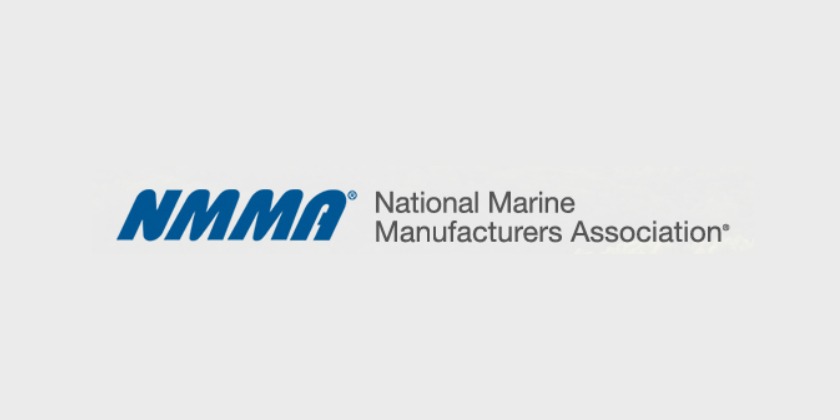Recreational Boating Industry Decries Advancement of Vessel Speed Rule

Mar 12, 2024
Earlier this week, the NMMA expressed disappointment with the decision by the Department of Commerce to advance the North Atlantic right whale (NARW) Vessel Strike Reduction Rule to the Office of Management and Budget (OMB). Proposed by NOAA, the rule would restrict small boats to 10 knots (roughly 11 mph) along much of the Eastern Seaboard for multiple months out of the year, which will significantly hurt U.S. coastal economies and the small businesses that make up the recreational boating industry.
This rule could put more than 810,000 American jobs and nearly $230 billion in economic contributions in jeopardy. More than 95% of boats sold in the U.S. are made in the U.S., and approximately 93% of boat manufacturers are small business owners. Many coastal economies are built on recreational boating, fishing trips and the hospitality industry that require access to the ocean, and this rule would create ripple effects throughout these economies.
“We are extremely disappointed and alarmed to see this economically catastrophic and deeply flawed rule proceed to these final stages,” said Frank Hugelmeyer, President and CEO of the National Marine Manufacturers Association (NMMA). “The proposed rule is based on incorrect assumptions and questionable data, and fails to distinguish between large, ocean-crossing vessels and small recreational boats, which could not be more different from each other. Most concerning, the proposed rule ignores the advanced marine technologies available now that can better protect the North Atlantic right whale and prevent vessel strikes. Bottom line, the rule’s many blind spots spell dire consequences for boater safety and accessibility, the economic vitality of coastal communities and marine manufacturers, and the livelihoods of countless supporting small businesses, all while undermining years of progress in marine conservation. We strongly urge the Administration to withdraw this rule and consider the technological solutions for which we have been advocating since 2022, which promise protections for the right whale, economy, and boaters.”
The movement of the draft rule to OMB represents the last step of the finalization of the rule.
“The solution has been, and always will be, to use technology to track and protect the whales – not to deny access to our oceans,” said Pat Healey, President and CEO of the Viking Yacht Company, the New Jersey boatbuilder that has helped fuel the industry’s opposition to the 10-knot restriction. “We’ve made tremendous strides through marine electronics already through the Whale and Vessel Safety Taskforce. NOAA should be leaning on us for solutions because this is our field of expertise. The ocean is our livelihood, and no one cares more about it than boat owners and anglers.”
“Recreational anglers and boaters are America’s original conservationists, and they understand the importance of protecting North Atlantic right whales, but NOAA’s proposal represents the most extreme federal regulation ever imposed on the angling community. We safely navigate around objects in the water every single day; whales are no different,” said Jeff Angers, president of the Center for Sportfishing Policy. “This is government overreach of the worst kind: missing the mark on conservation while cutting off safe vessel access to the open ocean. One-size-fits-all spatial closures will not save right whales. We have the technology today to safely coexist, and the federal government knows it. NOAA needs to start acting in good faith and follow us.”
“The MRAA is dismayed to learn that this flawed rule is proceeding to the final stages. The rule will have a devastating economic impact on marine retailers and other small boating businesses throughout the entirety of the East Coast,” said Matt Gruhn, President of the Marine Retailers Association of the Americas. “The MRAA joins the recreational boating and fishing industries in urging the Administration to withdraw the rule and work with industry to consider viable technology-based alternatives that will protect the North Atlantic Right Whale without compromising safety and accessibility of the livelihoods marine retailers and related small businesses.”
In February, the recreational boating industry hosted NOAA Fisheries Assistant Administrator Janet Coit at the Discover Boating Miami International Boat Show to educate her and her colleagues on the technological advancements that exist to detect marine mammals and prevent boat strikes.
In November, members of Congress and staff heard from representatives of the boating and fishing community about the devastating economic impacts the proposed rule will have.
Hugelmeyer testified last June at an oversight hearing held by the U.S. House Committee on Natural Resources, Subcommittee on Water, Wildlife and Fisheries on the vessel speed restriction, saying, “Marine mammal protection, economic prosperity and access to our cherished waters can coexist. It’s a false choice to make Americans choose one over the other. Innovative technologies, real-time tracking and monitoring tools offer a more viable solution to protect all whales while allowing for continued recreational marine-related economic contributions along the East Coast.” Click here to view his full testimony.
NMMA will continue to educate government officials on the economically damaging implications of the rule and will champion the marine technologies available to detect and protect against vessel strikes as an alternative to the burdensome regulation.



























